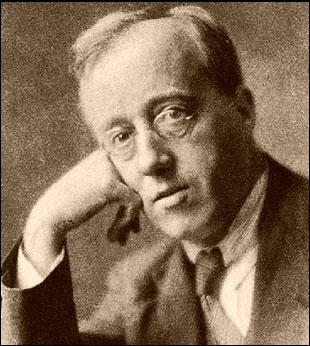NEW insights into the life of one of Britain’s greatest composers have come to light with the discovery of reels of film intended for a documentary that was never finished.
The colour film reels, dating back to the 1970s, contain unique interviews with family, friends and acquaintances of composer Gustav Holst (1874 – 1934), best-known for his orchestral suite The Planets. They were recorded for an unfinished film project on Holst’s life. 
The unique interviews, include reminiscences from Holst’s daughter Imogen and fellow composers Herbert Howells, Edmund Rubbra, and Sir Michael Tippett, were being stored at the The Holst Birthplace Museum, Cheltenham, until their recent discovery by producers at BBC Gloucestershire.
They were made aware of the footage’s existence after receiving an e-mail from a member of the original production team from the 1970s.
BBC Gloucestershire’s David Bailey, who helped unearth the archives, said: “It’s amazing to think that this footage has been hidden away all this time.
“The films give us a real insight into the life of Holst and what sort of man he really was.”
Director of Music at Gloucester Cathedral, Adrian Partington, agrees that the films are important for shedding new light on the life of Holst.
He said: “They are completely irreplaceable. They have so enriched my perception of what Holst was like as a man, and that in itself will enrich my perception of Holst as a composer because you can’t separate the two.
“Anybody who knew Holst well has long since died – close friends, students – they’ve all gone now so it’s fantastic. Its value is inestimable.”
According to a report on BBC News Gloucestershire about the discovery, the picture quality on some of the films has deteriorated with colours on the Eastman Colour II negative having faded after 30 years in storage. But it adds that the the footage is still “perfectly watchable” and that the “original audio tapes have survived the test of time much better”.
The footage has now been digitized for use on the BBC’s website and also transferred to DVD, using one of the few remaining Steenbeck film editing machines at BBC Bristol.
Each reel of film had to be matched up with the appropriate sound tape and the two synchronised together. The films could then be imported into modern digital video editing software.

















